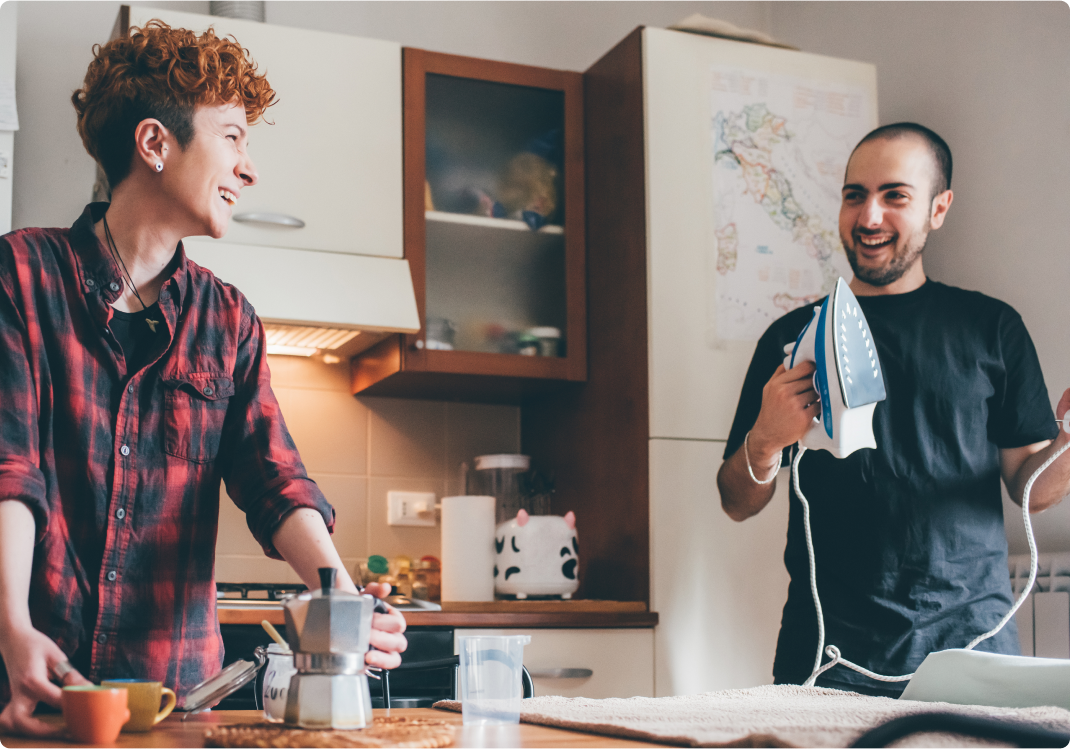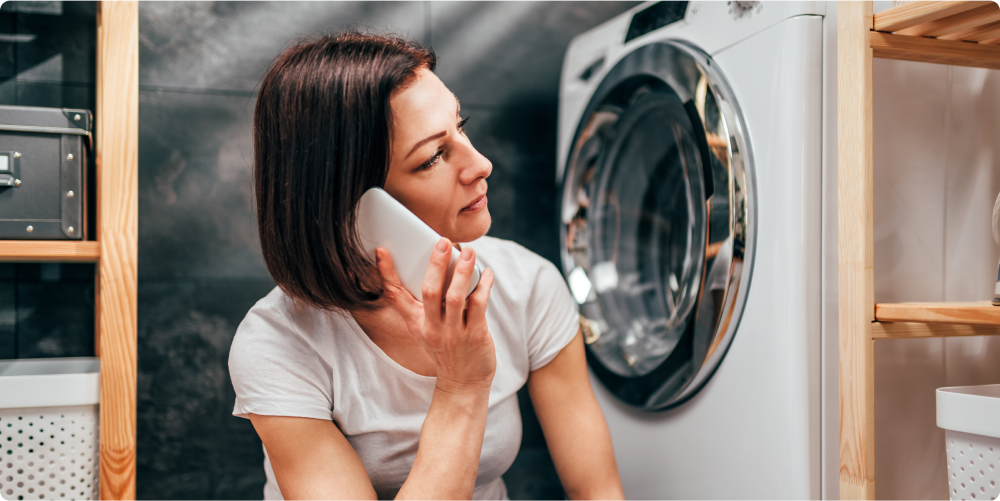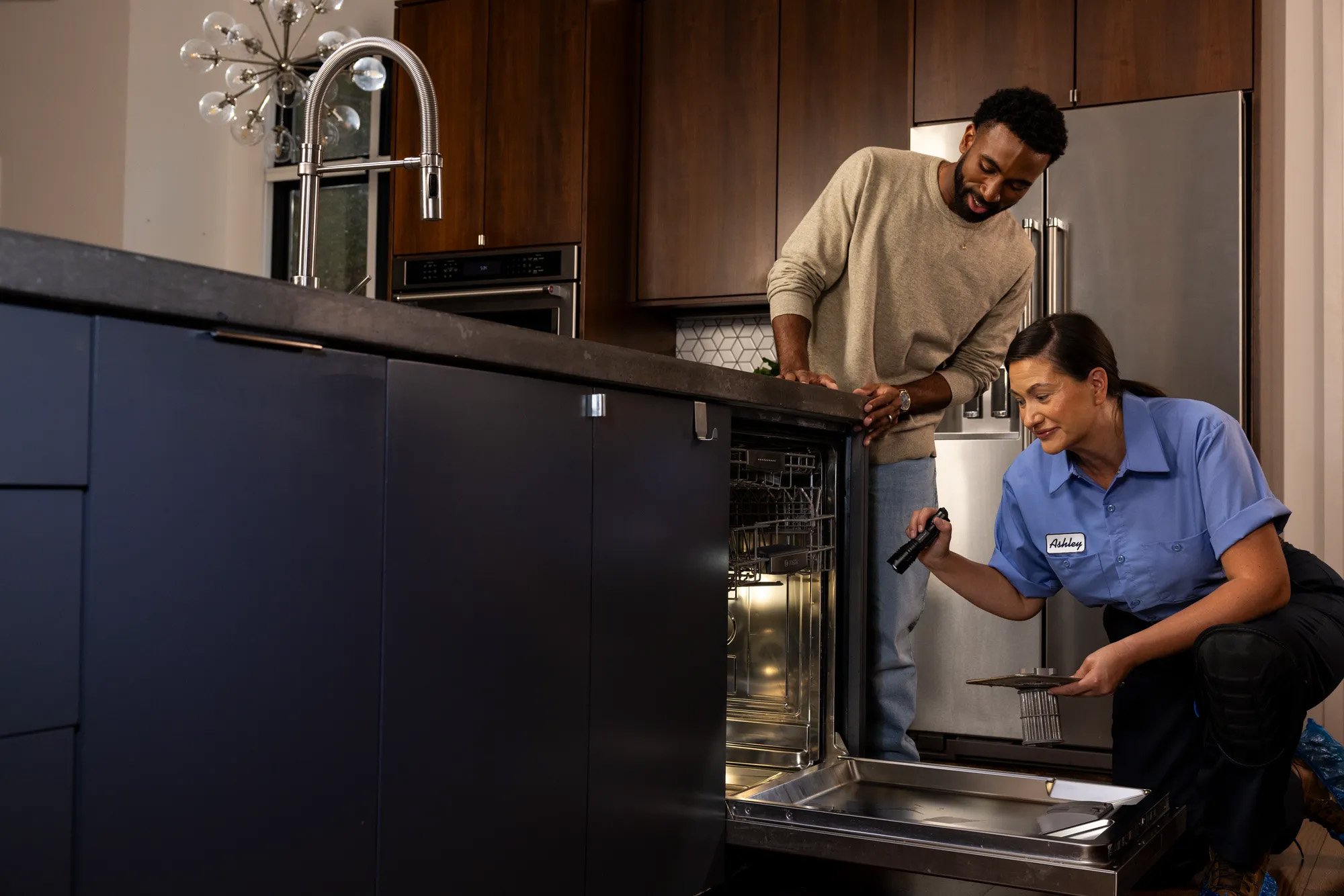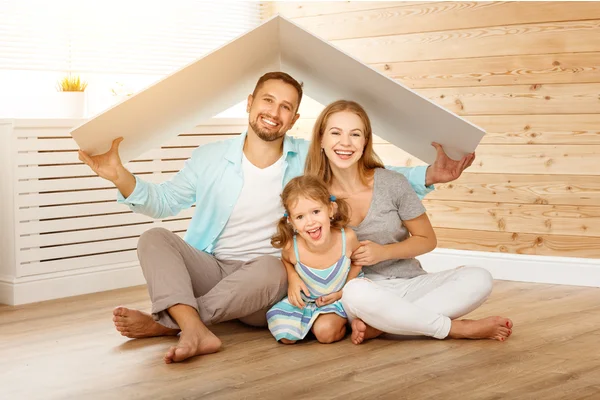Housing prices have exploded since the COVID-19 pandemic, and that’s pushed many younger would-be homebuyers to the real estate sidelines.
It’s gotten so bad that some have dubbed millennials the “roommate generation” for their continued practice of renting, living with their parents, or buying a home with the intention of renting part of it out.
For many, renting a room is a strategic financial decision that affords them the opportunity to build long-term wealth while offsetting record-high home prices.
But additional people inside the home means more wear and tear. And that’s where a home warranty can help. A home warranty can protect your wallet as a homeowner—and your friendships when you inevitably suffer a broken appliance from overuse.
If you’re thinking about renting out a portion of your home, make sure you’re ready! Follow our guidance:
- Benefits of Renting Out Your Home
- Responsibilities of Renting Out Your Home
- Use A Home Warranty: Protect Your Home Systems and Appliances from Wear and Tear
- Rekey Coverage For Added Security
- Find the Right Home Warranty Today
Benefits of Renting Out Your Home
Renting an extra room or two provides multiple financial and social benefits. And even though there are a few disadvantages to having a roommate, the benefits outweigh the drawbacks.
Renting a room:
- Helps you pay down your mortgage. If you still have a monthly mortgage payment, rent payments can provide a welcomed revenue stream.
- Helps you build an emergency fund. That extra month cash injection isn’t just good for your mortgage; it’s valuable for anything. And for many people across the country, additional income is perfect for creating an emergency fund for car repairs, hospital bills, job loss, or home repairs (though a home warranty can certainly help on that front).
- Built-in companionship. Having a tenant or roommate gives you a neighbor right under your roof. And if you’re on good terms with that individual, their presence means a nearby friend or companion, which can make your home feel more active and less lonely.
Responsibilities of Renting Out Your Home
Renting out a spare room in the home you own and live in yourself is a little different than splitting rent on an apartment.
1. Maintenance and repairs. For one thing, you, the homeowner, will be responsible for maintenance and upkeep of the property — you have to keep it in good shape so that your roommates will feel safe and comfortable enough to continue living there.
By the same token, if your roommates damage the property, you’ll be responsible for repairs, and if the repairs aren’t made, it’ll come out of your profits when you sell the house.
2. Evictions. Being a landlord sometimes means making the difficult decision of evicting tenants who fall behind on their rent or break the lease agreement.
This sort of confrontation can feel difficult. Remember that a lease agreement is ultimately a business agreement, and your income is at risk with rowdy or irresponsible tenants.
3. Developing a legal lease agreement with clear expectations. Your lease should clearly outline:
- How many people are allowed to live in the property
- Who is allowed to live in the property
- Monthly rent amount
- When rent is due
- The tenant’s responsibilities for general upkeep
- The tenant’s responsibilities for utilities, if any
4. Insurance and liability considerations. Renting out rooms in your home may open you up to liability from a home insurance standpoint. If your roommate invites someone over and that person gets injured on the property, for example, you may find yourself involved in a lawsuit.
If your home gets struck by lightning and burns to the ground, your possessions will be covered by your homeowner’s insurance, but your roommate’s stuff won’t.
For these reasons, it’s a good idea to require lodgers to get their own renter’s insurance policies to cover their personal possessions and personal liability. You should also give them a lease agreement with clear expectations for things like pets and overnight guests.
5. Finding responsible tenants. Because you’ll depend on your roommate for rental income, you’ll want to find reliable occupants for your spare room or rooms. Not only that, but because you’ll be living there too, they will need to be people that you feel comfortable with and can trust.
That can be difficult, and it may mean that spare rooms will need to remain empty while you search for suitable occupants. This will affect the amount of rental income you can expect, and could make it less regular.
You should plan for this by buying a home that you know you can afford on your own. Lenders won’t consider potential future rental income when choosing whether and how much money to loan you for a home purchase, so if you can qualify for a mortgage, you should be able to afford it, at least in theory.





